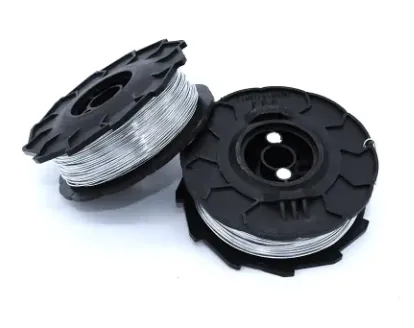
- Mobiltelefon
- +8613931874955
- sales@cntcmetal.com
Iron Binding Wire: the 'invisible reinforcement specialist' in the fields of architecture and industry
In many aspects of construction and industrial production, seemingly ordinary Iron Binding Wire plays a crucial role and can be called the "invisible reinforcement master". With its unique physical properties and flexible and diverse usage methods, it has become a powerful assistant in ensuring the stability of various engineering structures, playing an irreplaceable role in different fields.

Iron Binding Wire, based on its excellent physical performance, demonstrates strong practicality
Iron barbed wire is usually made of high-quality steel with high tensile strength, capable of withstanding large tensile forces without breaking. Its flexibility is also outstanding, and it can be easily bent and wrapped according to actual needs, adapting to various complex reinforcement and binding scenarios. In addition, the surface of Iron Binding Wire has undergone rust prevention treatment such as galvanizing, which enhances its corrosion resistance. Even when used in humid or harsh environments, it can maintain stable performance for a long time, providing a guarantee for the long-term safety of the project.
In the field of architecture, the application of Iron Binding Wire is ubiquitous and crucial
During the concrete pouring process, iron barbed wire are used to tie steel bars and firmly connect them into a stable steel skeleton, ensuring that the concrete structure can evenly distribute the load under stress and effectively improve the compressive and seismic performance of the building. From the framework construction of high-rise buildings to the reinforcement of steel bars in bridges and tunnels, Iron Binding Wire plays a silent role behind the scenes. When building temporary support structures, Iron Binding Wire can quickly tie and fix materials such as wood and steel pipes to form a stable support system, ensuring construction safety and project progress.
In addition to the construction industry, Iron Binding Wire also performs well in both industrial and daily life
In the field of mechanical manufacturing, iron mesh wire can be used to secure components, bundling tools, and equipment, ensuring the orderly progress of the production process. In agricultural production, farmers use Iron Binding Wire to build greenhouses and bundle crops, creating favorable conditions for crop growth. In daily life, scenarios such as home maintenance and gardening styling also rely on wire of iron, which can help people easily solve practical problems such as item fixation and structural support, becoming a practical "universal helper".
Iron Binding Wire has demonstrated tremendous value in various fields such as construction, industry, and daily life due to its superior performance and wide range of applications. Although it may seem ordinary, it provides solid support and guarantee for various projects and activities with its resilient and reliable characteristics. With the continuous development of material technology, Iron Binding Wire will continue to optimize and upgrade, play a greater role in more fields, and continue to play an important role as an "invisible reinforcement engineer" to safeguard people's production and life.
Iron Binding Wire FAQs
What is the main purpose of Iron Binding Wire?
Mainly used in the construction industry, such as reinforcing concrete structures, binding steel reinforcement skeletons, or building temporary support frames, it can also be used in fields such as horticulture and packaging.
What are the common specifications of Iron Binding Wire?
The common diameter range is 0.8mm to 4mm, and different thicknesses are suitable for different strength requirements. For example, thin wires (1-2mm) are used for light binding, and thick wires (3-4mm) are used for heavy reinforcement.
Does Iron Binding Wire need rust prevention treatment?
Yes, especially when used in humid environments, it is recommended to choose galvanized or coated Iron Binding Wire to avoid rusting and affecting structural stability.
How to ensure the firmness of Iron Binding Wire?
Special tools (such as binding hooks) need to be used to tighten the Iron Binding Wire, and cross winding or double strand binding methods should be used to ensure that the steel reinforcement nodes are not loose.
Can Iron Binding Wire replace welding?
It can be replaced in temporary structures or non load bearing parts, but key load bearing parts (such as beams and columns in high-rise buildings) still need to be welded or mechanically connected to ensure strength.
Ossza meg:
-
Yard Sign Stakes: Reliable Guardians of Outdoor SignshírekAug.04,2025
-
Wall Ties: Invisible Guardians of Building StabilityhírekAug.04,2025
-
Resilient Web: The Super Guardian Power of Concrete MeshhírekAug.04,2025
-
Masonry Accessories: A versatile assistant on building foundationshírekAug.04,2025
-
Dynamic Spring: The diverse functions and excellent performance of Wire Tension SpringhírekAug.04,2025
-
Your Source for Concrete Wall Ties and Masonry AccessorieshírekJul.10,2025
-
Unlocking the Power of Iron Wire for Every ProjecthírekJul.10,2025



















